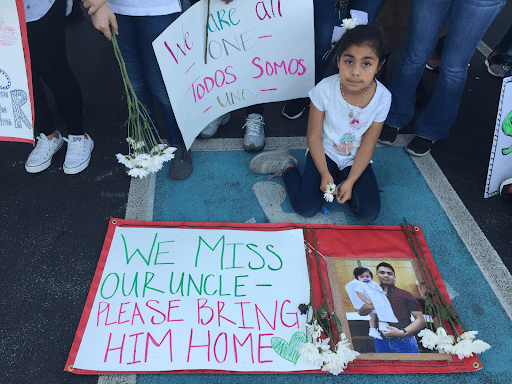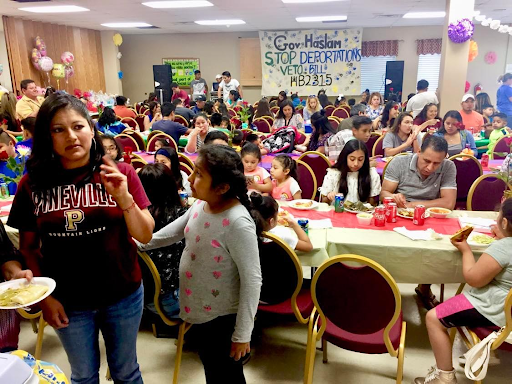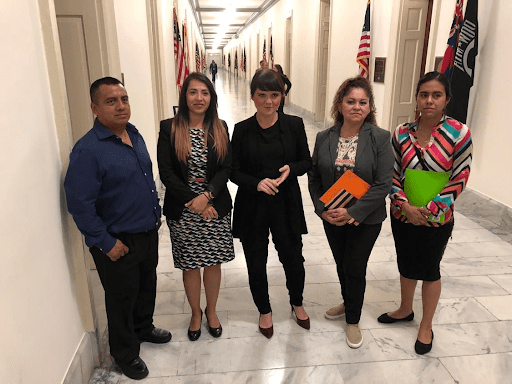This week, after grassroots organizing from a local immigrant rights group, meatpacking workers in Tennessee finally got the justice they deserved after a worksite raid five years ago.
The arrests happened on April 5, 2018 at the meatpacking plant in Bean Station in East Tennessee. Workers at the meatpacking plant reported rough treatment and detention by ICE officials — a clear violation of the law and basic constitutional rights.

Children were left without primary caretakers, forcing local churches to provide sanctuary for dozens of family members who didn’t know what had happened to their loved ones. Eyewitnesses also reported that local law enforcement blocked roads around the plant, creating a sense of chaos and panic within the community. The result was devastation. It was truly a man-made disaster led by the Trump administration using Tennessee as a practice ground to carry out their anti-immigrant policies in workplace raids.
But Tennessee Immigrant and Refugee Rights Coalition (TIRRC) worked from day one with the families affected. Finally, on February 27th, 2023 a federal judge held a final approval hearing on a classwide settlement in a lawsuit challenging the raids which provided over $1 million to affected workers.
The day of the raid, TIRRC and the national Fair Immigration Reform Movement, of which I’m a part of, created a safe space at St. Patricks’ church and embarked with the families affected on a process of healing and political consciousness building that helped to translate their pain into power. Imagine 100 people from your community, suddenly disappearing. I remember coming into the church and seeing around 300 family members crying and in distress, trying to understand why it happened and where their loved ones were.
We created exercises where youth drew how they were feeling and what they wanted their communities to look like. We had walks around the church where we displayed people’s names who were missing and created an altar where we offered our thoughts and prayers to them. That church became a sanctuary and a sacred space where day and night, people would come and get a warm plate of food and start to transform the trauma, channeling their anger towards a very simple question: Who made it possible for this raid to happen in a small town in rural Tennessee?

They questioned local mayors in the area, who never denounced the raids publicly, and started looking for answers from the then-Governor. Bill Haslam. The families were courageous and decided to share their stories in the media.
They created a committee and fund for victims of the raid called Todos Somos Uno, which held vigils, protests and a Mothers’ Day celebration. Along with TIRRC, St. Patrick’s Church and others raised $70,000 to pay for the bond and to cover other immediate needs.
Todos Somos Uno was able to come to Washington D.C last summer and organized a congressional hearing with TIRRC, FIRM, National Immigrant Law Center and the Southern Poverty Law Center in order to put their stories on record and share how these brutal enforcement actions destroyed their town. Their voices won.

Under the expected $1.175 million settlement, class members will receive a total of $550,000 and can request a letter from ICE confirming their membership in the class that can be included in any applications for immigration relief. The settlement also requires the U.S. to pay $475,000 to the six individual plaintiffs to resolve their Federal Torts Claims Act claims, including excessive force and unlawful arrest, and $150,000 in attorneys’ fees and expenses.
This ruling represents the power of organizing. When we organize, we can transform traumatic situations like an immigration raid, into power that can transform structures. This litigation demonstrates to ICE that their methods are inhumane and targeting anyone for their immigration status is unjust. While this is a big win, none of these families should have been separated in the first place and some of them still remain separated. FIRM is working to make sure not a single dollar goes to fund these structures that are tearing communities apart and that one day the 11 million undocumented immigrants living in the U.S have a path to citizenship.